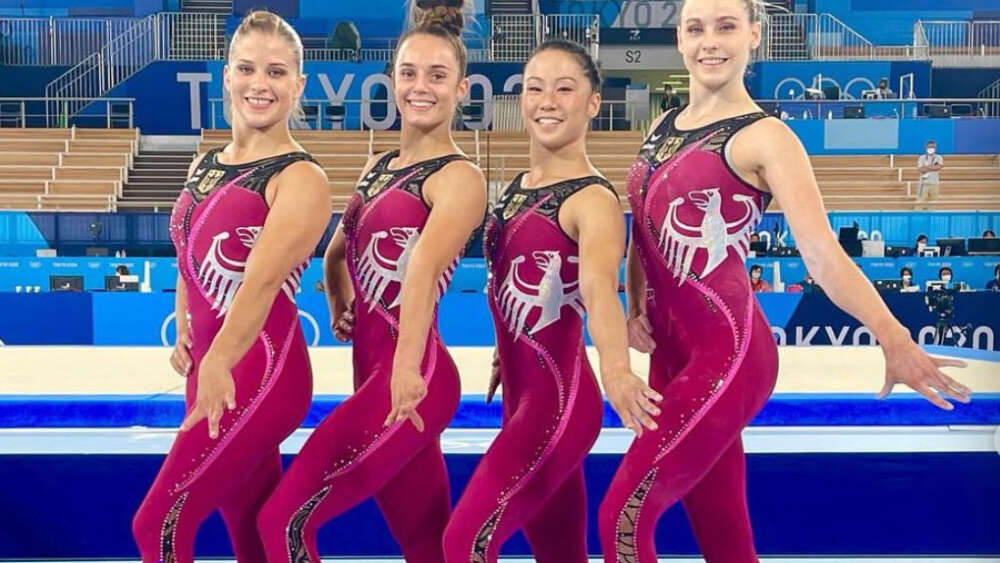Beyond the medal count, shock wins or defeats, the Tokyo Olympic games signal a social change. Female athletes are wrestling control of their image back from mostly male sports officialdom.
In Tokyo, the German female gymnasts are wearing a “unitard” – that covers the legs, down towards the ankles.
“For decades, female gymnasts have worn bikini-cut leotards,” the ABC notes.
While “Male gymnasts wear comparatively body-covering clothes: singlets, with loose shorts for their floor exercise and vault, and long pants on bar and pommel horse routines.”
The gymnastics federation gymnastics Deutsche Turner-Bund explained their stance earlier this year, “Against sexualisation in gymnastics: “European Championship gymnasts from the DTB start in Basel in long gymnastics suits. The aim is to present aesthetically – without feeling uncomfortable.”
Norway provides another example.
“The Norwegian women’s beach handball team was fined for “improper clothing” during the European Championships in Bulgaria, writes Rachael Jefferson-Buchanan, a lecturer in human movement studies (health and PE) at Charles Sturt University. “This was because they were playing in shorts, as opposed to the required skimpy bikini bottoms, which should be “a close fit and cut on an upward angle toward the top of the leg” and have a maximum side width of 10cm, according to the 2014 International Handball Federation regulations.”
The Cover Me In Sunshine singer Pink is extending support to the team after they were fined 150 Euros each by the European handball federation.
https://twitter.com/Pink/status/1419127641068630016
It is not a random gift. Pink was a gymnast for eight years, from ages 4 to 12.
The team Instagrammed their thanks for all the support. Their Federation paid the fine and the EHF, possibly embarrassed donated it back.
Sports history recounts a fight for skimpy clothing, paralleling the evolution of swimwear. But now the dynamic is reversed with women claiming the right to be seen as sportspeople rather than a sexualised image being forced on them.
Jefferson Buchanan puts it this way: “Both the handball and gymnastics examples highlight how women, as insiders within the institution of sport, are beginning to challenge how their bodies are presented and policed by sports federations.
“This paves the way for more sportswomen to oppose dress codes that are based on archaic ideas of what women should look like, often through the eyes of men.”
A common perception is that Western Society is getting ever more sexualised. Groups like Collective Shout push back against raunch culture. In some ways, it is a lonely fight. But here are two examples of another approach emerging in the sporting arena.
Email This Story
Why not send this to a friend?



